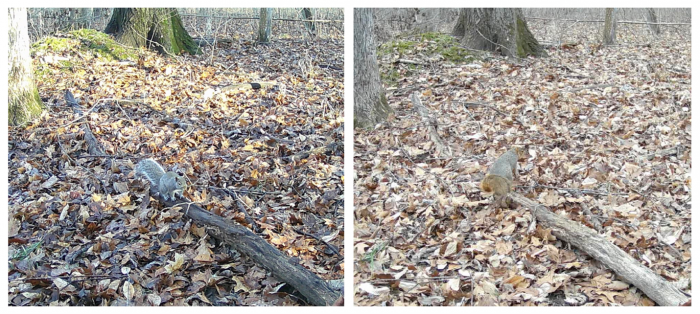Jim Benedix is a field biologist whose interests span the interfaces of ecology, evolution and behavior. He and his students have studied frogs, crickets, squirrels, and fish, as well as numerous plant and tree species.
One of Dr. Benedix’s current research interests is the effect of climate change on trees, which involves at measuring tree ring growth as an indicator of stress from extreme weather and other ecological factors like herbivores, and making predictions about future changes in forest species composition. Another current interest is habitat segregation in tree squirrels, looking at gray and fox squirrels (Sciurus carolinensis and S. niger, respectively), which have broadly overlapping ranges but show variation in comparative habitat usage across their ranges.
 Gray squirrel (left) and fox squirrel (right) photographed in the same location.
Gray squirrel (left) and fox squirrel (right) photographed in the same location.
In addition to being a professor in the Biology Department, Benedix serves as the Biological Coordinator of the 520-acre DePauw University Nature Park. In his dual role one of his primary goals is to give students effective field research experiences in which they fully collaborate in the design of projects and then gather basic data that can be useful in the management of the Nature Park.
Professor Benedix teaches in the areas of ecology, evolution, conservation, and biostatistics. Among the courses he teaches regularly are: BIO 102 Evolution, Organisms and Ecology, BIO 342 Ecology, BIO 348 Behavioral Ecology and BIO 375 Biostatistics.